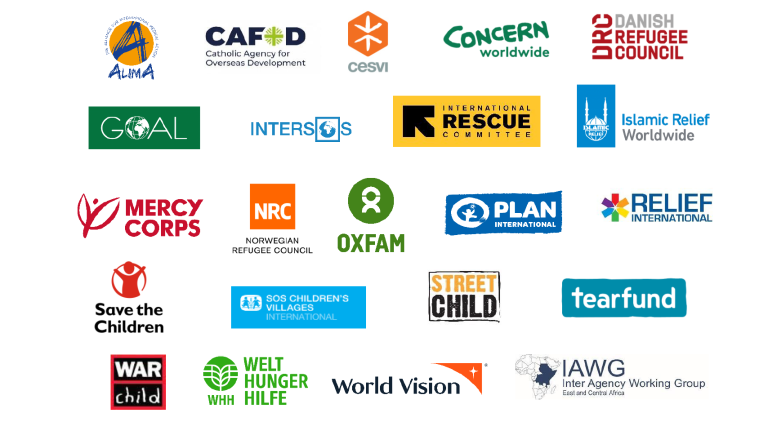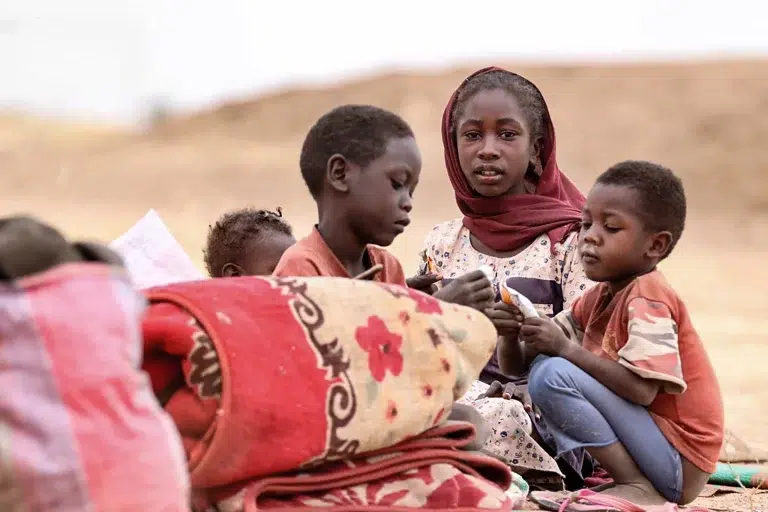ALIMA, an organization with the mission of providing quality medical care to the most vulnerable people during emergencies and crises – some of which are the result of climate change – adopted an environmental approach in 2020, by revising its charter and including its commitment to integrate environmental responsibility into its medical projects.
According to the United Nations report published in October 2021, more than 100 million Africans are threatened by global warming by 2030, thus increasing food insecurity, poverty, and population displacement – emergencies for which ALIMA is fighting on the front lines.
Henri Leblanc, Deputy Chief Executive Officer of ALIMA said : “Thanks to the mobilization of its teams, ALIMA has managed, in less than a year, to carry out its first carbon footprint assessment and to determine an ambitious roadmap for reducing its carbon footprint and adapting its most polluting practices, in an effort to face up to its responsibility with regards to climate change.”
ALIMA adopts an ambitious greenhouse gas emissions reduction strategy without undermining its medical mission
To achieve ALIMA’s target of reducing GHG emissions by 50% and optimizing its waste management by 2030, the new roadmap outlines 20 concrete solutions – excluding any recourse to carbon offsets. In collaboration with the Climate Action Accelerator, ALIMA has defined a nine-year plan, with an option for readjustment every three years depending on progress, challenges, and opportunities for acceleration.
For a medical humanitarian organization such as ALIMA, the sources of greenhouse gas emissions are typically concentrated. Three main activities – purchasing and fixed assets, transportation, and energy consumption in buildings – represent 97% of the organization’s total carbon emissions.
As a result, ALIMA is also committed to implementing stringent environmental purchasing criteria; maximizing the shift from air to sea freight for projects supply; rationalizing staff travel, particularly by air; switching to renewable energy to power buildings and equipment; implementing a “zero waste – zero single-use plastic” policy.
The roadmap also includes an evaluation of the human, technical and financial resources that are required to adapt ALIMA’s working model.
ALIMA is taking a collective approach
In keeping with its partnership-based operating model, ALIMA has built its roadmap in close collaboration with teams from the Climate Action Accelerator, an initiative whose objective is to support organizations like ALIMA in kickstarting their environmental transition. The roadmap was also built in close collaboration throughout ALIMA’s organization through a collaborative internal platform, which gave priority to individual member’s feedback.
By transparently sharing its experience and tools, and by sharing its progress and challenges, ALIMA hopes to lead its operational partners and stakeholders along the demanding path of environmental commitment.
“Africa’s vulnerability to climate change requires that we move quickly into action and radically change our ways of working,” says Dr. Kader Issaley, ALIMA’s Director of Operations. “With a view of continuously improving our practices and empowered by our collaboration with local partners, we are highly motivated to collectively rethink humanitarian aid.”
About ALIMA
ALIMA (The Alliance for International Medical Action) is a medical humanitarian NGO established in 2009 to provide quality health care to the most vulnerable people in high-mortality areas during emergencies and crises. ALIMA relies on an operational model based on partnerships with national humanitarian actors and local communities, and has established itself as a key player in the medical humanitarian field in Africa. ALIMA’s ambition is to revolutionize emergency medical aid and transform humanitarian medicine, by conducting research and fostering innovation to strengthen the impact of humanitarian actions. In 12 years, ALIMA has treated more than seven million patients in 14 countries, and launched more than 30 research projects, with a focus on malnutrition, malaria, Ebola, COVID-19 and Lassa fever.
About the CAA
A non-for-profit organization, the Climate Action Accelerator works to scale up the climate solutions of organizations in humanitarian aid, health and education. Their mission is to help these organizations to at least halve their emissions by the year 2030, in line with the Paris Climate Agreement (2015).
Media Contact
Clémentine Colas :
clementine.colas@alima.ngo
+221 644 83 47
+33 6 87 27 12 96 (whatsapp uniquement)
Cover : © Sylvain Charkaoui / ALIMA






